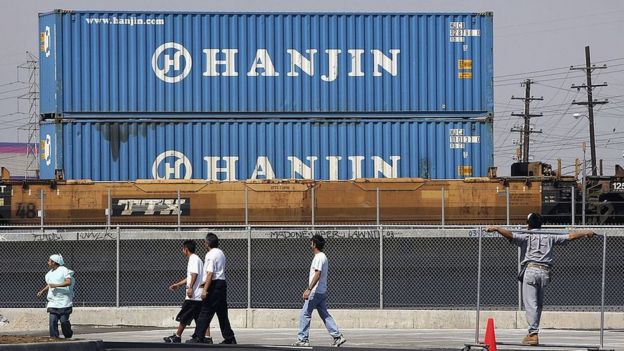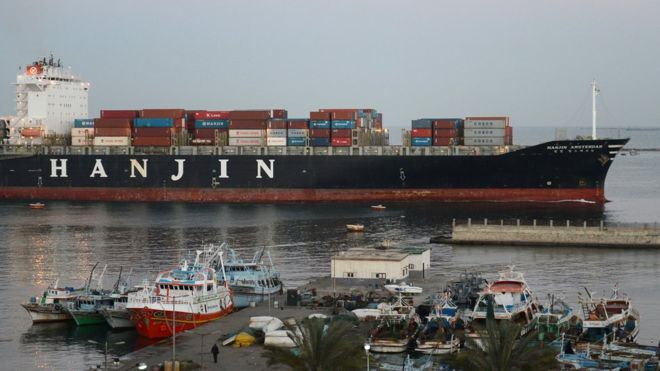South Korean shipping giant Hanjin to enter receivership
South Korea’s biggest shipping group Hanjin is set to enter receivership after its creditors refused to provide further funding to the indebted firm.
Hanjin’s board unanimously agreed to make the court filing at a meeting on Wednesday, a company spokesman said.
It faces a cash shortage after failing to persuade key lenders to reschedule debt under a new restructuring plan.
Shares of Hanjin remain suspended in Seoul after plunging by as much as 29% on Tuesday.
Hanjin, which is also the world’s seventh-largest container line, has been unprofitable for four of the last five years.
Potential buyer?
Hanjin may get some financial relief courtesy of rival Hyundai Merchant Marine (HMM).
Shares of HMM jumped by as much as 22% after Korea’s financial regulator said the firm may buy some of Hanjin’s assets.
However HMM hasn’t been spared from the woes bedevilling the sector. It recently announced a reorganisation plan too.
South Korea’s shipping and shipbuilding industry is one of the hardest-hit by a prolonged downturn in global trade.
 Image copyrightGETTY IMAGES
Image copyrightGETTY IMAGESTroubled waters
A drop in orders has led to overcapacity and depressed freight rates, as well as an increase in debts.
“Korean shipping companies have suffered large losses largely because charter rates on leased vessels were fixed in 2010 at a high level while actual shipping rates have fallen,” Nomura analyst Young Sun Kwon said.
The South Korean government is now looking to undertake a painful reorganisation of the entire industry, which will require major retrenchments.
The ongoing restructuring is one of several reasons why we expect growth to be weak this year and next, Krystal Tan from Capital Economics said.
“The loss of tens of thousands of jobs certainly won’t help economic sentiment,” she added.
“But it is a relatively small number when set against the 26m people in employment in Korea so we’re not likely to see a big spike in the unemployment rate.”
From BBC NEWS.





